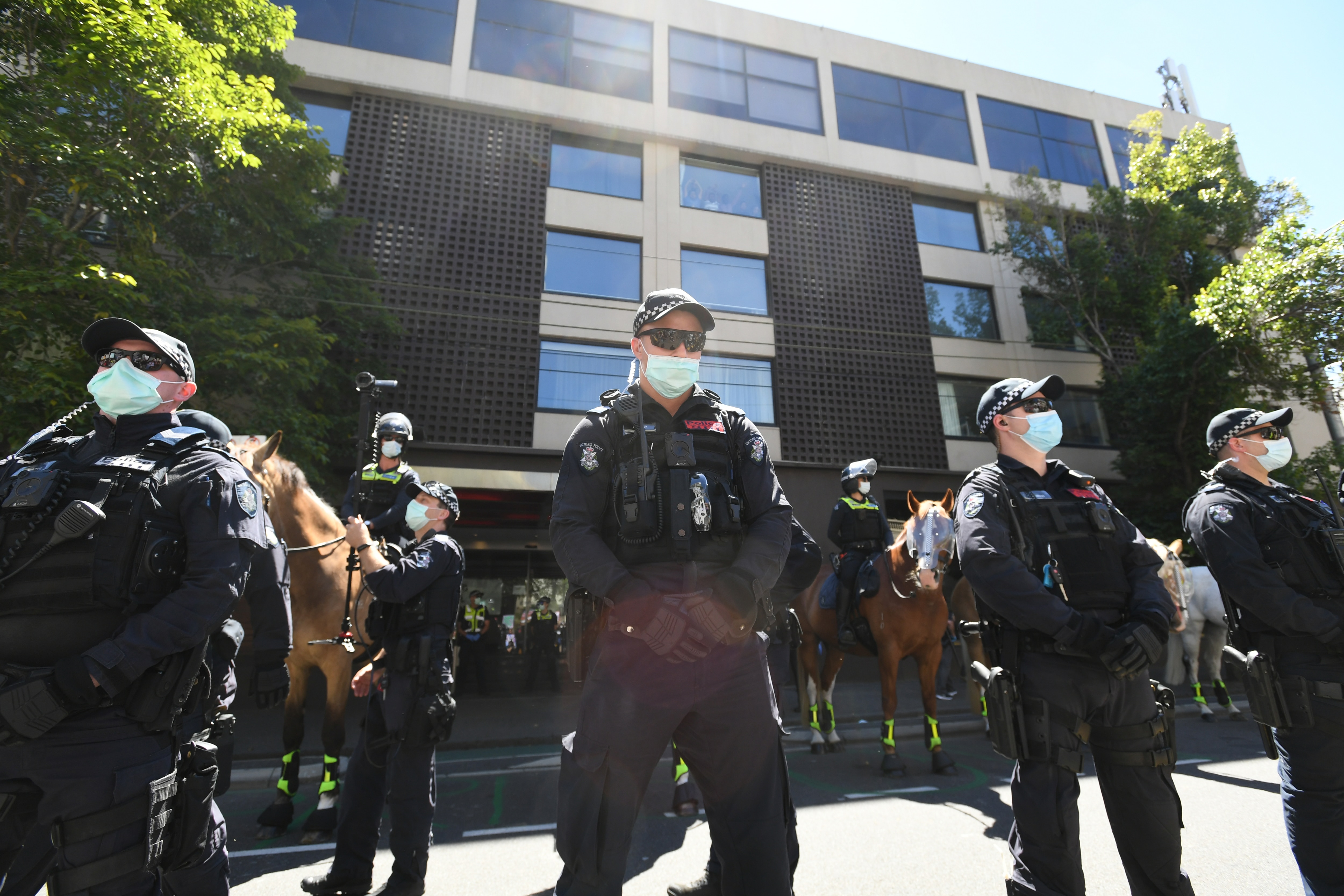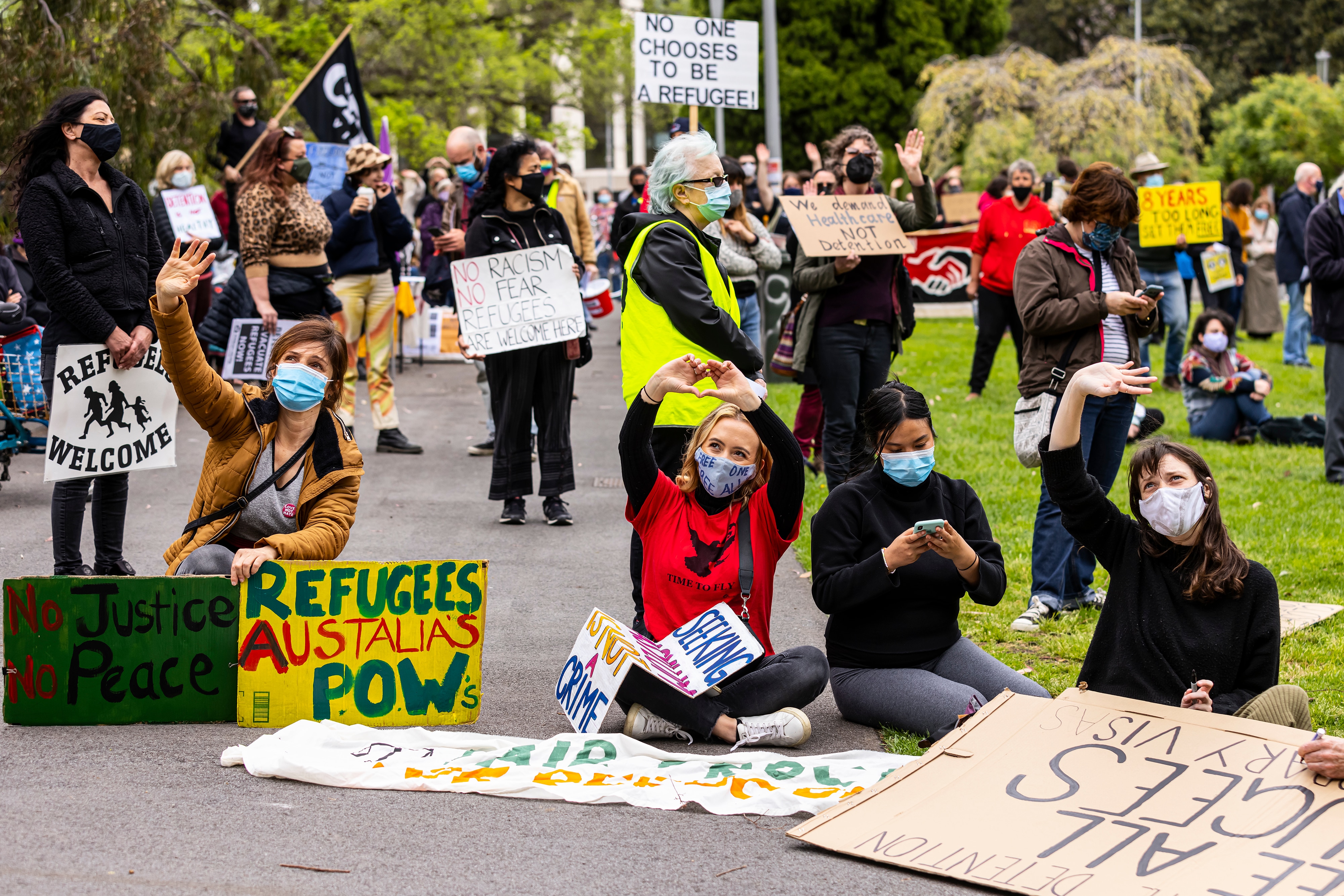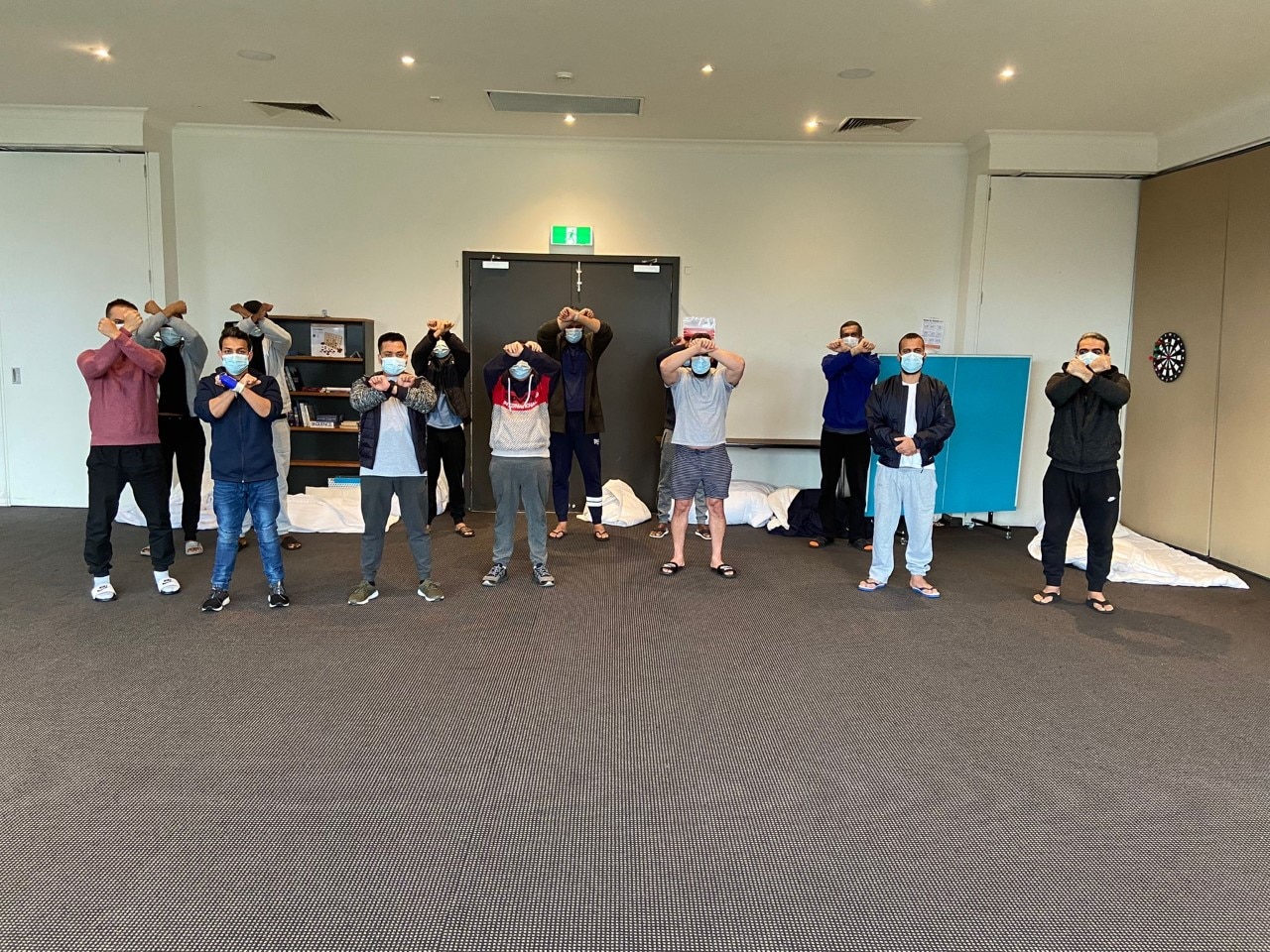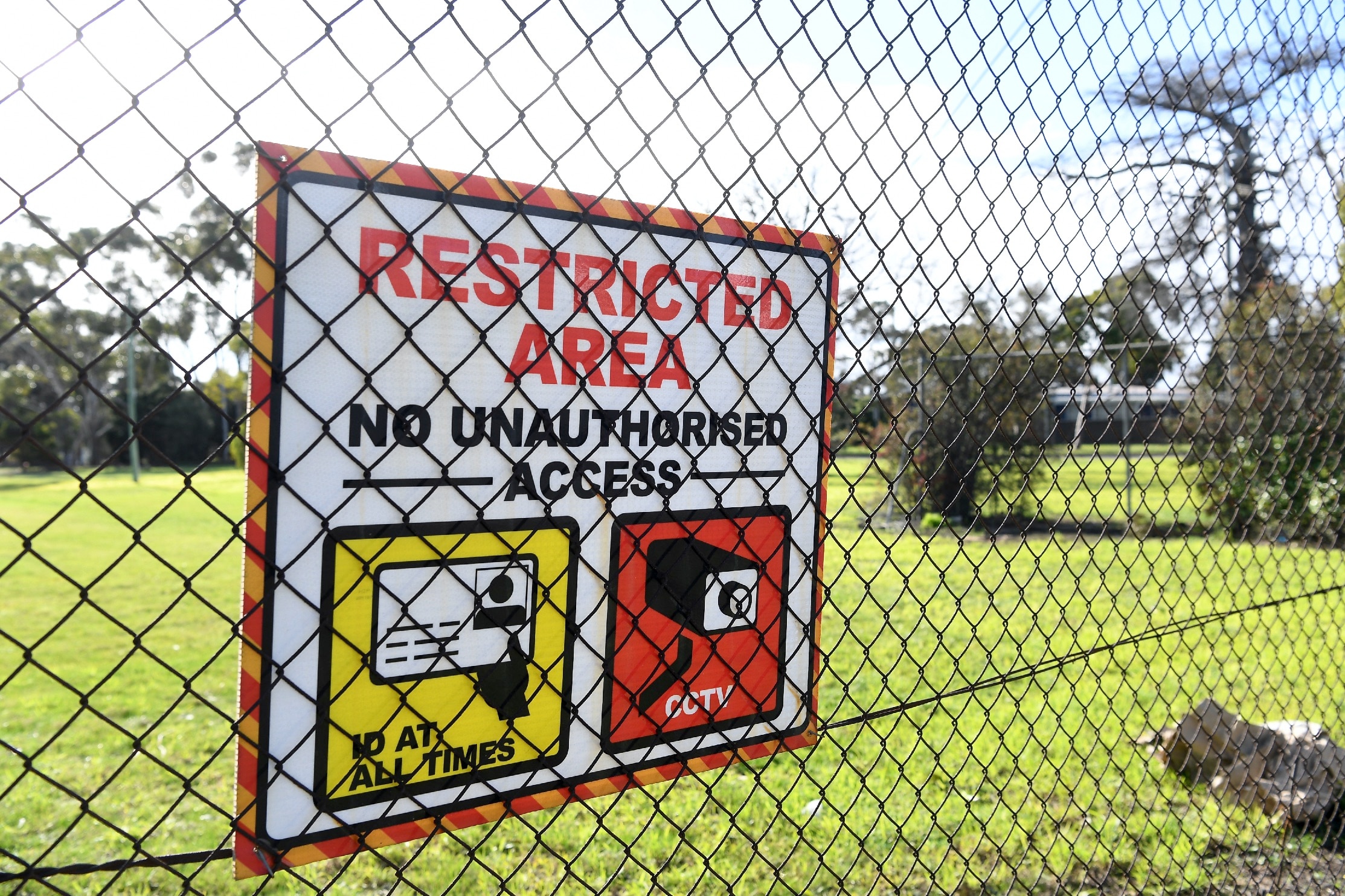Refugee with disability says hes sleeping rough after release from immigration detention
During the peak of Melbourne’s COVID-19 lockdown, Mr Rahman was receiving $550 each fortnight through the Department of Home Affairs' Status Resolution Support Services (SRSS) program.
But he said this money was not enough to cover his rent, bills and other expenses - and he is now living on the street.


Police are seen outside the the Park Hotel in Melbourne, Saturday, January 09, 2021 Source: AAP
“For three months, I’ve been saying to my case manager, mental health staff, everybody, I am homeless,†Mr Rahman said.
“This life very dangerous for me. At nighttime I cry and wonder why my life is like this.
Mr Rahman was transferred to Australia in 2019 under the Medevac agreement.
Along with his spinal disability, Mr Rahman walks with a cane due to a bad fall he had on Nauru, which he said caused damage to his femur.
Last February, Mr Rahman was released into community detention in Melbourne and is currently on a bridging visa which grants him access to Medicare.
He said when he was later detained in Melbourne’s Park Hotel, he was given little support to manage his disabilities apart from medication.
“Nothing, nothing, no anything, nobody help us,†he said.
“Just sitting on the bed all day.â€


Refugee advocates wave to people inside the Park Hotel in Carlton on Saturday. Source: AAP
A spokesperson from the Department of Home Affairs said assistance through the SRSS program can include financial support, accommodation, access to health care and education for school-aged children, caseworker support and case management.
The spokesperson said the Department does not comment on individual cases but they noted: "not all recipients are eligible to receive all available services."
"Support does not exceed what is available to low-income Australian citizens and permanent residents," they said.
‘People with disability feel invisible in immigration detention’Advocates and immigration lawyers say there has been little focus on meeting the needs of people with disabilities in immigration detention.
As of 9 June, there were 130 people held in detention with an ongoing disability, according to figures released by the Department of Home Affairs.
Read More


The Refugee Council of Australia says the government took a year to provide a blind asylum seeker with a replacement cane - telling it could be used as a "weapon".
“The man with the vision impairment experienced significant distress,†said Sahar Okhovat from the Refugee Council of Australia.
“For me, it was a very vivid illustration of how this issue is being managed through that risk management perspective without consideration of people’s needs, agency and dignity.â€
In a submission to the ongoing Disability Royal Commission, the Refugee Council of Australia highlighted the difficulties faced by refugees and asylum seekers who have disabilities and are stuck in immigration detention.


Asylum seekers and refugees protesting their conditions at the Park Hotel in Melbourne. Source: Supplied by source
The submission also discussed accessibility issues inside immigration detention centres.
In 2015, The National Ethnic Disability Alliance found the Australian Government failed to consider the needs of people with disability in the design of onshore and offshore detention facilities.
The Commonwealth Ombudsman in 2019 found new compounds in Melbourne Immigration Transit Accommodation did not have a ramp to assist people with disability.
“You see this lack of consideration of the needs of people with disabilities and the continuous use of places like Christmas Island and Yongah Hill that are securitised and remote detention facilities,†Ms Okhovat said.
Read More

 'A punitive approach’
'A punitive approach’Inside immigration detention, disability is often dealt with punitively rather than compassionately, according to human rights lawyer Alison Battisson.
Ms Battisson was interviewed as part of the refugee council's submission. She told SBS News about 90 per cent of her law firm's cases have some form of disability.
“There are no processes in place to assist people with disabilities to cope in immigration detention,†Ms Battisson said.
“That often results in acting out behaviour… that is often the last resort because that person is so distressed.â€
Ms Battisson said when people showed signs of distress in immigration detention, they are often met with heavy-handed responses.
“They could have… various ‘privileges’ are denied to them, they could be placed in isolation cells... and often, they are violently physically restrained.â€


The Melbourne Immigration Transit Accommodation complex in Broadmeadows. Source: AAP
The refugee council's report also describes a “destructive cycle†of declining mental health resulting in detainees being more likely to disengage from legal support, get charged with offences and move between prisons and immigration detention indefinitely.
Ms Okhovat said the use of spit hoods, handcuffs and physical restraints on those with disabilities is unnecessary and concerning.
“People have declined access to medical care because they don't want to be seen with handcuffs," she told SBS News.
“The report talks about people being handcuffed while they're in a wheelchair or to a hospital stretcher. So they're extremely excessive."
Read More


Ms Battisson said people with disabilities should not be kept in closed detention centres.
“They are unable to cope with indefinite arbitrary immigration detention in a closed detention centre, where you can be moved from centre to centre and state to state," she said.
Ms Okhovat is calling for greater transparency from the government when it comes to people with disabilities in immigration detention settings.
“We shouldn't have to go through Senate Estimates and Freedom of Information requests, this is all about transparency and accountability,†she said.
“People should know how many people with disabilities are being detained with the taxpayers’ money by the Australian Government.â€
SBS News asked the Australian Border Force about the use of handcuffs and restraints on people with disabilities but they did not answer the question. They also did not respond to a question about calls for greater transparency.
In a statement, an ABF spokesperson said: "Health care services for detainees in held detention are comparable to those available to the Australian community, under the Australian public health system.
"The Department’s contracted Detention Health Services Provider is responsible for mental health care and support services which are delivered by general practitioners, mental health nurses, psychologists, counsellors and psychiatrists, including those specialising in torture and trauma counselling services," they added.
The ABF spokesperson said "timely health care" is facilitated in immigration detention with an emphasis on early intervention.
"Any further specialised health care required for individuals is reviewed on a case by case basis."
0 Response to "Refugee with disability says hes sleeping rough after release from immigration detention"
Post a Comment